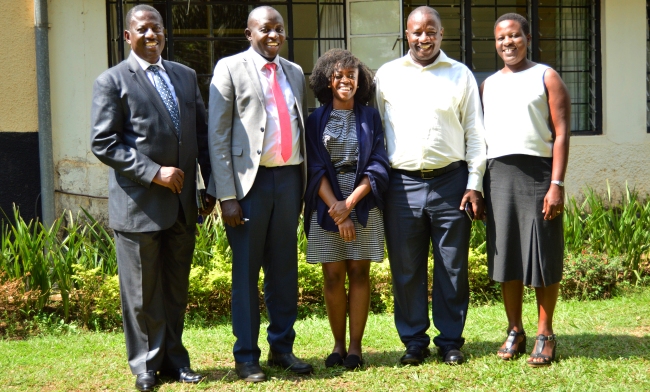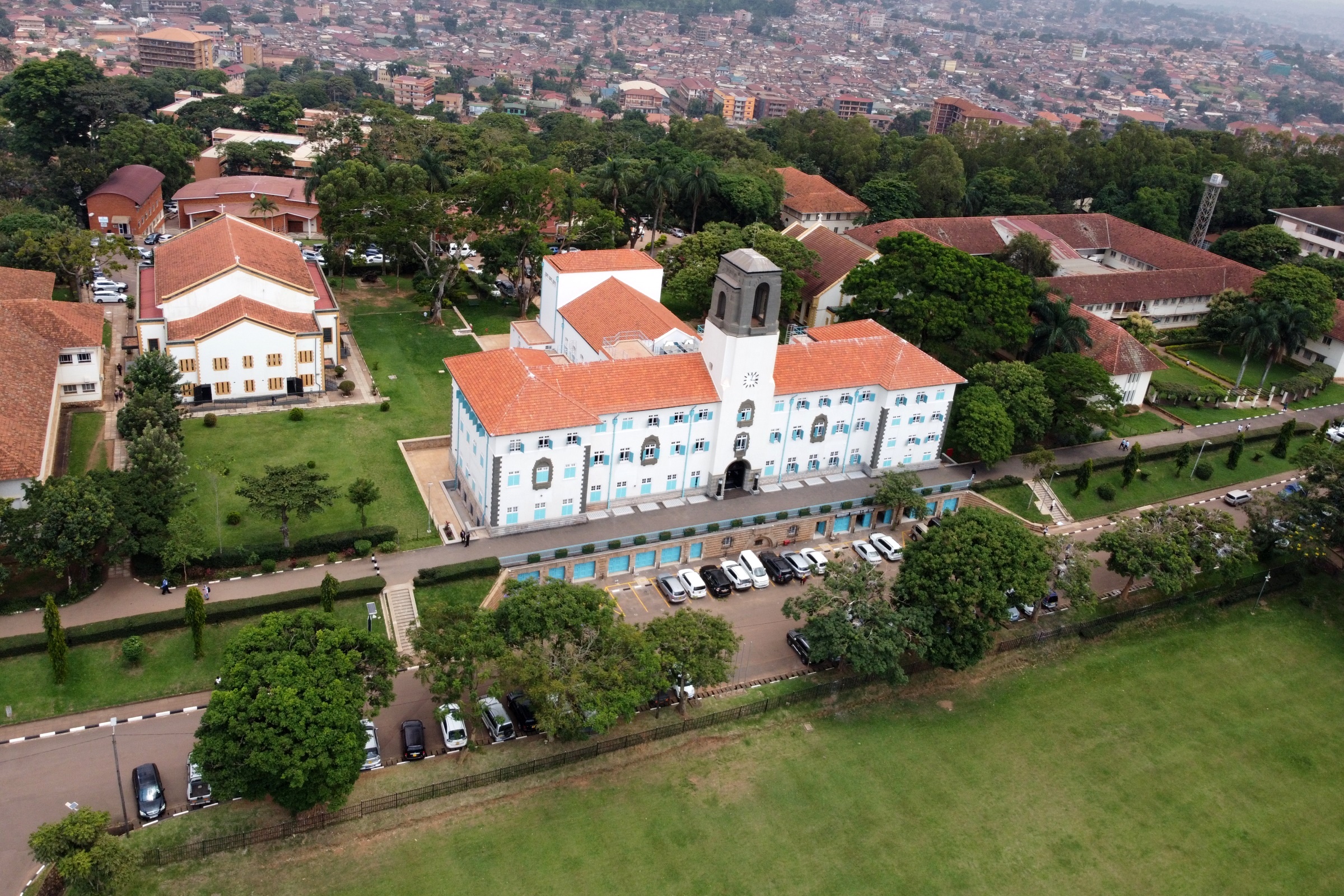Students from Makerere University have successfully completed a pilot of the Oral Communications Badge Challenge thanks to support from the Education Design Lab and International Research and Exchanges Board (IREX). The pilot was coordinated by the Counselling and Guidance Centre (CGC) and the Oral Communications Badge Challenge was one the first competency-based skills needed by students to succeed in the workplace introduced by IREX, as part of the umbrella 21st Century Skills Badging Challenge.
Speaking during an interactive session held at the University Guest House on Monday 4th December 2017, the Manager CGC, Mr. Henry Nsubuga thanked IREX for providing the technical expertise and materials needed to pilot the Oral Communications Badge. Twenty two out of twenty six students that participated in the pilot received the badge.
According to the Education Design Lab information kit for partner institutions such as Makerere, badging is a system used to identify and verify individual skills and achievements, and is gaining momentum as a way to certify and display skills that are not taught through traditional courses. Educators are beginning to use badging as a way to map a second track of learning alongside the academic transcript and create micro-credentials that can complement a diploma and capture competency in specific areas.
During the Oral Communications pilot, students were able to acquire skills like; active listening, knowing how to reach your audience, storytelling, elevator pitching and professional communication among others. “There are several degree awarding institutions out there and our role as CGC with the help of partners like IREX is to find ways of better equipping our students such that they stand out more than their competitors in the market place,” added Mr. Nsubuga.
“We met with some of the students who participated in the pilot and they all shared positive feedback about the course. For example one student of nursing shared how they are now better equipped to talk to patients when out conducting practical sessions. The purpose of this meeting therefore is to find ways of how we can better work with IREX to roll out this project out on a larger scale,” shared Mr. Nsubuga.

“One of the things the students have enjoyed the most is the practical aspect” continued Ms. Nina Oduro, a Leadership Technical Advisor supporting IREX’s leadership programmes. “They are now seeing a difference in their daily interactions with their peers and Professors. One noted that they could now easily notice when a listener misinterprets what they say thanks to active listening,” she added.
The Dean of Students, Mr. Cyriaco Kabagambe by virtue of his designation interacts with student leaders of both academic and cultural associations on a daily basis. He observed that student leaders wield a lot of power to either positively or negatively influence their constituents.
“Misunderstood communication is one of the biggest problems in our daily interactions with students,” said Mr. Kabagambe. “We have a lot to communicate to the students and they too have a lot of issues to communicate to us. However, if we do not package them nicely, we can easily misunderstand each other,” he further explained.
The Dean of Students therefore urged IREX and CGC to consider student leaders of Halls, Hostels, Places of Worship, Colleges and Cultural Associations, who together constitute the Guild Repre-sentative Councilors (GRCs). “I am willing, with guidance from the Counselling and Guidance Centre, to see how this program can be integrated into student activities,” he added.
Whereas IREX provided the original training material, it had to be customised so as to be include examples relevant to the Ugandan situation, and thereafter the trainings had to be conducted. These activities were successfully completed thanks to the efforts of CGC Counsellor-Ms. Rose Nalwanga and Ms. Rita Kyamuhangire, a volunteer at CGC.

Ms. Kyamuhagire, from her experience, observed that she had met several students with excellent grades who unfortunately were unable to beat their lower scoring peers during interviews, owing to their lack of 21t century competency based skills. These include critical thinking, creative problem solving, Cross-Cultural Competency and others.
“The beauty with this course is that it is mostly interactive. It calls for a lot of storytelling, role play, face to face discussions and presentations in person. We also ask the students to analyse TED talks for the presenters’ oral communication skills or strengths,” said Ms. Kyamuhangire.
She further noted that the course structure is flexible and as a result of constant requests from the students, public speaking was also added as a component. The course was also piloted among students on the MasterCard Scholars Fellowship Program (MCFSP) at Makerere University.
The working relationship between IREX and Makerere University goes back five years to 2012 when in consultation with the Carnegie Corporation of New York (CCNY), IREX expanded its University Administration Support Program (UASP) to include university administrators from Makerere.
“Eleven Administrators have attended the 8-week program since its inception,” said Mr. Nsubuga, before adding “many of the partnerships we have built at CGC are as a result of my attendance of the UASP Fellowship in 2015. What remains now is a coming up with measures on how best we can apply what we learn during the fellowship to our setting here.”
Speaking on the way forward, the Brand and Marketing Officer-Mr. Agaba Issa Mugabo urged Mr. Nsubuga to formalize Makerere’s relationship with IREX through a Memorandum of Understanding, so as to clearly spell out activities that will be undertaken thereunder.
Article by Public Relations Office

 General2 weeks ago
General2 weeks ago
 General5 days ago
General5 days ago
 General2 weeks ago
General2 weeks ago
 Natural Sciences6 days ago
Natural Sciences6 days ago
 Health1 week ago
Health1 week ago





